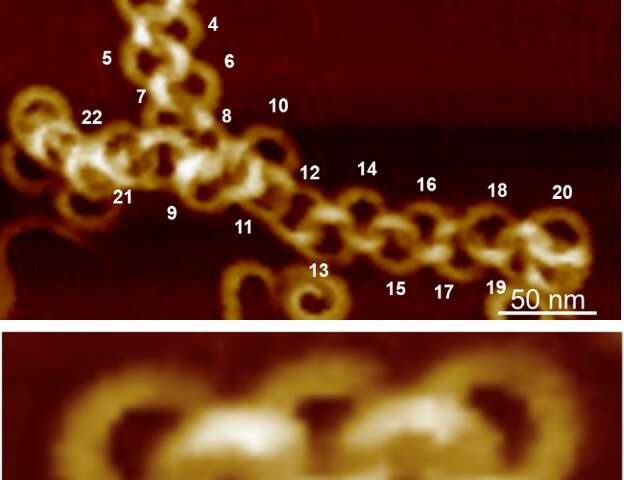An international research group led by Chiba
University Professor Shiki Yagai has for the first time developed
self-assembled polycatenanes, structures comprised of mechanically
interlocked small molecule rings. The research group also succeeded
in observing the geometric structure of the polycatenanes via
atomic force microscopy (AFM). This work, published in the journal
Nature, is the first to achieve synthesis of nano-polycatenanes
through molecular self-assembly without using additional molecular
templates. Yagai, a professor of applied chemistry and
biotechnology at Chiba University, sees this as the first vital
step in technological innovation for creating nanometer-sized
topological structures.




